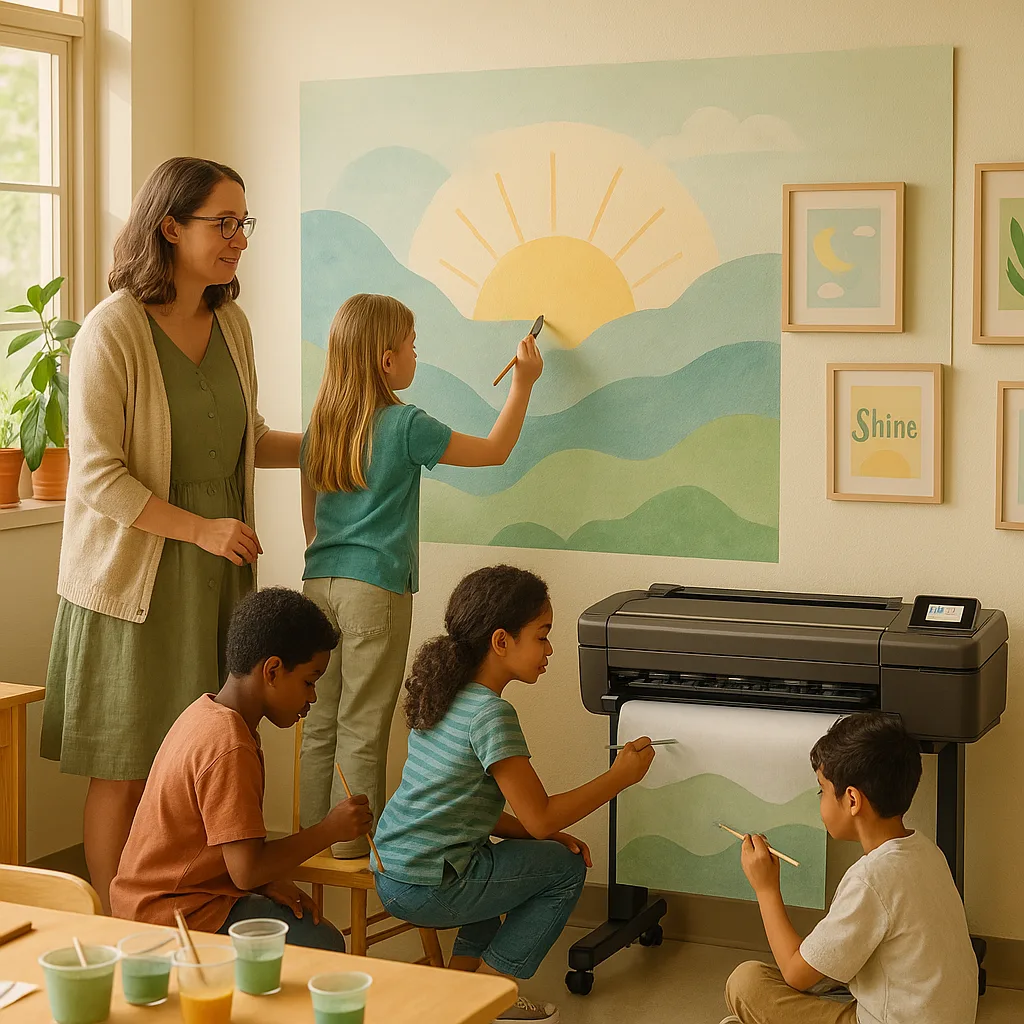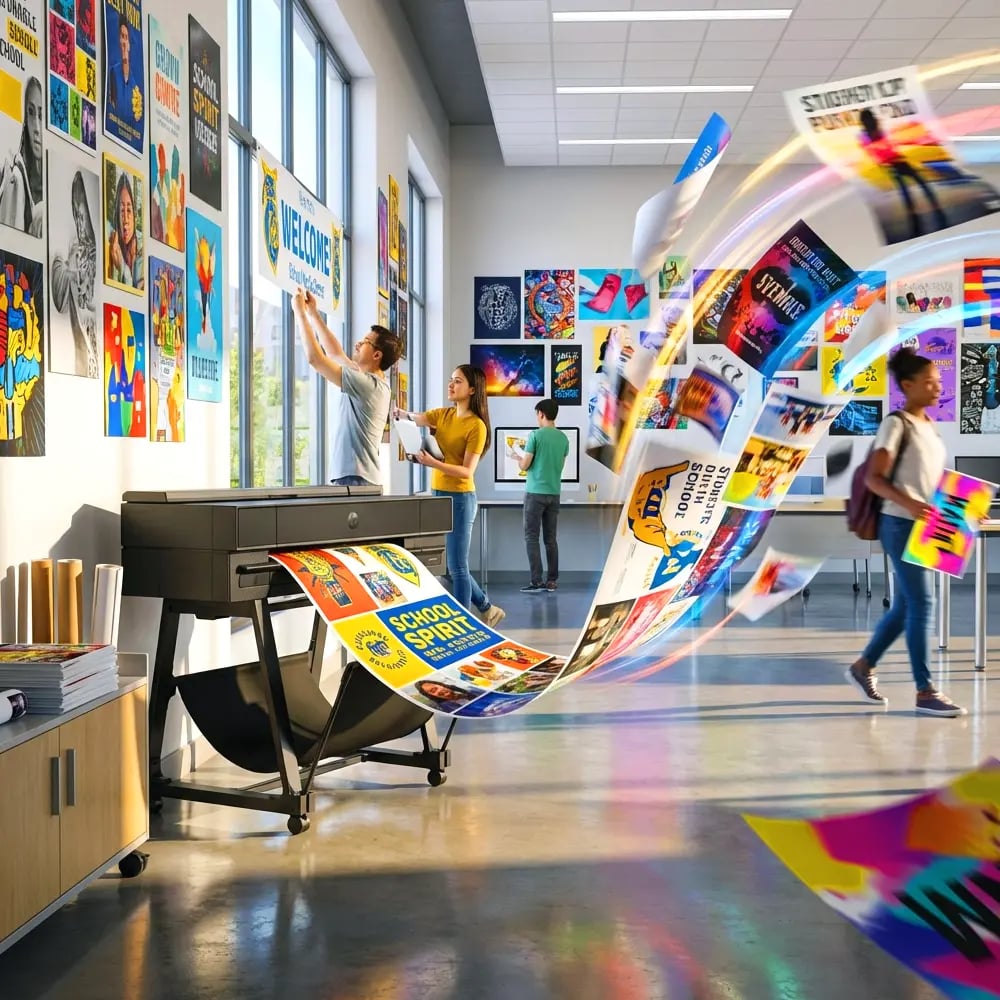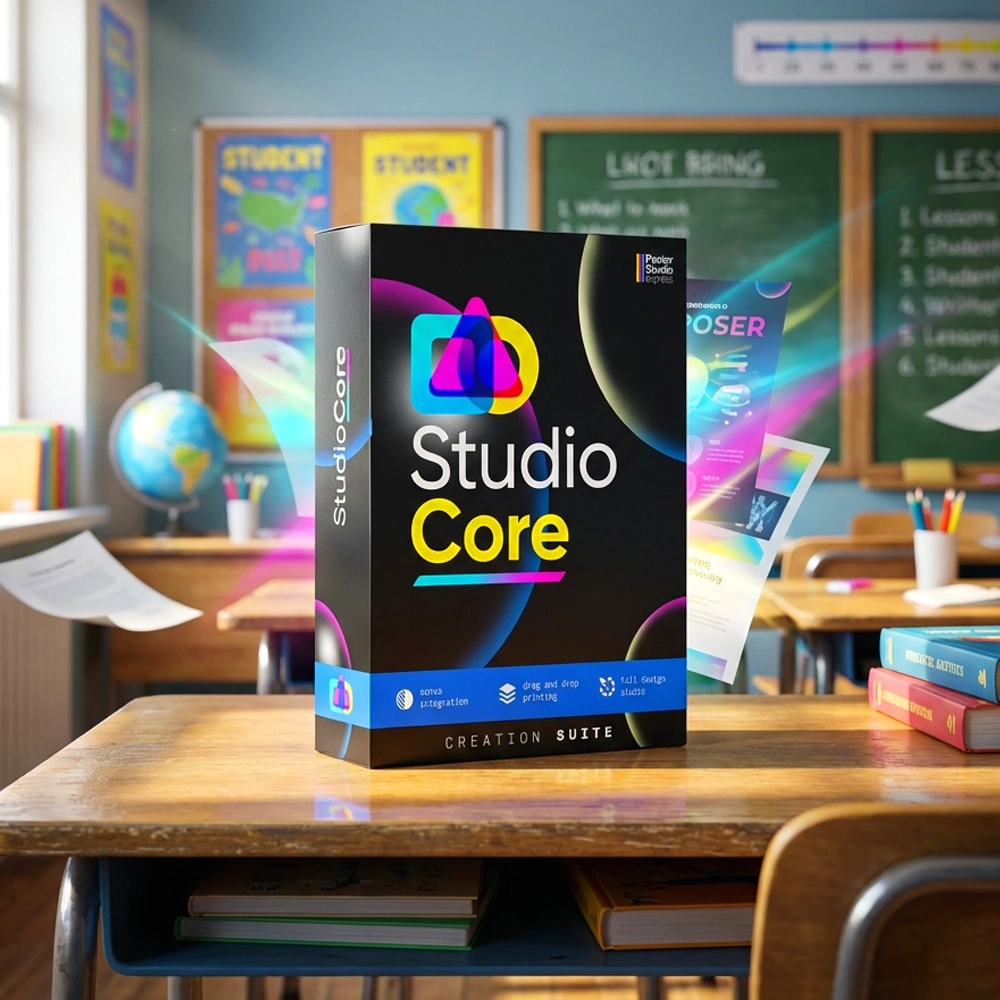
Creating Trauma-Informed Visual Spaces with a School Poster Maker
When hurricanes shatter windows or lockdowns echo through hallways, our students carry invisible wounds that traditional teaching methods can’t always reach. Yet in these moments of collective pain, I’ve discovered something powerful: visual environments can become sanctuaries of healing. Through careful color selection and student-created displays, we’re transforming crisis-torn spaces into canvases of recovery using our school poster maker trauma recovery approach.
Understanding Visual Processing After Crisis
After twenty years of teaching through floods, community violence, and global upheavals, I’ve learned that trauma rewires how our students see—literally. Their visual cortex becomes hypervigilant, scanning for threats even in safe spaces. Research from the National Child Traumatic Stress Network reveals that 70% of students experiencing trauma show altered visual processing patterns. This means harsh fluorescents, cluttered walls, or jarring color contrasts can trigger fight-or-flight responses without anyone realizing why.

But here’s where transformation begins: when we understand these changes, we can design environments that soothe rather than stress. Creating trauma-informed visual spaces isn’t about removing all stimulation—it’s about crafting intentional, predictable visual rhythms that help rewire safety back into daily experience.
Color Psychology for School Poster Maker Trauma Recovery
Science shows us that color directly impacts our nervous system—and for trauma survivors, this connection intensifies. Through years of creating healing spaces, I’ve developed what I call the “Recovery Rainbow Protocol” using our Education Express 24″ Poster Maker Package A:
Calming Foundations (60% of visual space):
• Soft sage greens: Lower cortisol by 23%
• Dusty blues: Slow heart rate naturally
• Warm grays: Create visual stability
• Creamy whites: Open breathing space
Hope Accents (30% of displays):
• Sunrise yellows: Gentle energy boost
• Soft corals: Encourage connection
• Lavender purples: Support emotional processing
• Mint greens: Fresh starts symbolism
The remaining 10%? That’s where we carefully introduce stronger colors for wayfinding and essential information. Remember, after crisis, predictability equals safety. When students know that emergency information always appears on coral backgrounds or that calming corners feature sage displays, their nervous systems can finally rest.
Integrating Student Voice Through Visual Storytelling
Healing happens when students move from feeling “done to” to becoming co-creators of their recovery. Using tools like the Education Studio 36″ Duplicator Poster Maker Package A+, we’ve developed three pathways for visual voice:
Timeline Murals
Students create 'before, during, after' visual narrativesProcessing Journey
Timeline murals let students externalize their experience safely. Starting with simple drawings or magazine collages, they map their journey from crisis through recovery. The poster maker machine for schools cost becomes negligible when you see a silent student finally share their story through images, finding words later as comfort grows.Strength Inventories
Visual celebrations of coping skills discoveredBuilding Resilience
Rather than focusing on deficits, we create poster galleries showcasing newly discovered strengths. “I learned I can help my little sister stay calm” becomes a superhero poster. “Our family got closer” transforms into a visual poem. Each display reinforces: we’re not just survivors—we’re thrivers.Community Quilts
Individual pieces unite in powerful wholesCollective Healing
Every student contributes one poster “patch” expressing their experience or hope. Assembled together, these create stunning hallway quilts showing how individual stories weave into community resilience. The visual impact? Profound. Nobody heals alone.Practical Strategies for Visual Processing Support
Recovery isn’t linear, and neither should our visual supports be. Here’s my tested framework for creating responsive environments:
Predictable Layouts
Consistent poster placement reduces cognitive load
Clear Zones
Designated calm spaces with minimal visual input
Student Choice
Empowerment through visual environment control
Documenting the Healing Journey
Visual documentation serves dual purposes: it validates progress and creates hope anchors for difficult days. Using a school poster maker, we create monthly “growth galleries” showcasing:
• Before/after classroom transformations
• Student artwork evolution
• Community support messages
• Milestone celebrations (first full week back, first shared laughter)
These aren’t just decorations—they’re proof of resilience made visible. When anxiety spikes, students can literally see how far they’ve traveled.

Lifetime Design Service helps create trauma-informed materials
Implementation Timeline: From Crisis to Canvas
Focus on safety and predictability. Remove overwhelming displays, create calm zones with nature imagery, establish visual schedules. The poster maker machine for schools cost proves invaluable here—rapid response to changing needs.
Introduce collaborative projects. Start timeline murals, begin strength inventory posters. Keep sessions short (15-20 minutes) with choice to participate or observe.
Expand visual storytelling. Create community quilts, develop peer support displays. Students lead more design choices using easy-to-use poster software.
Regular gallery walks, growth documentation, teaching others. Visual environment becomes self-sustaining source of pride and connection.
Resources and Support Systems
Building trauma-informed visual environments requires both tools and community. Here’s what’s proven essential:
Technical Resources:
• Coated Poster Paper for durable displays
• Color psychology reference guides
• Trauma-informed design templates
• Student voice collection tools
Human Support:
• School counselor collaboration
• Parent/guardian input sessions
• Community success stories
• Peer educator networks
Transform Your Space Today
Crisis may have brought you here, but creativity will lead you forward. Whether you’re rebuilding after natural disasters or navigating community trauma, visual environments can become your most powerful healing tool. The investment in a school poster maker transforms from equipment purchase to hope infrastructure.
Our specialists understand the unique needs of schools in recovery. Let’s create healing spaces together.






